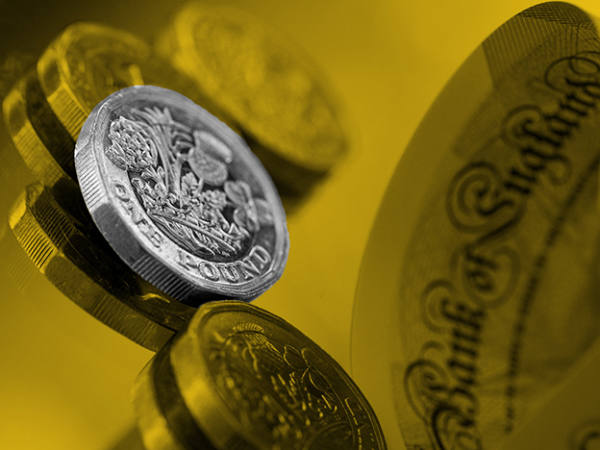Moneysupermarket.com (MONY) is a very profitable business with a strong market position. It may find it harder to keep growing its profits but investors should be able to benefit from steady income returns over the next few years.
The business
Moneysupermarket is the UK’s largest price comparison website. Its business aims to save people money on essential household and personal bills by giving them access to price comparisons and the ability to switch and buy products. In doing so, it gives the companies that provide the products and services an easy way to acquire customers. Moneysupermarket had 13.1m active customers in 2019 and saved them an estimated £2bn.
The business trades under four major trading brands in Moneysupermarket.com, MoneySavingExpert.com, Travelsupermarket.com and decisiontech. It reports its revenues from four different sources:
Insurance: This is its biggest revenue stream accounting for just under half the company’s total. It provides price comparisons on car, home, life and pet insurance.
Money: Around three-quarters of the revenues of this business come from customers switching credit card providers. It also provides comparisons on personal loans and has recently moved into mortgage comparisons. It also provides customers with the ability to monitor changes in their credit score and choose better credit and loan products off the back of it.
Home services: This involves comparison services on electricity, gas, broadband and mobile phone providers As with the Money business, there is a monitoring service here as well. Customers can monitor their energy bills against changing offers from energy providers and receive alerts when they can switch and save significant amounts of money.
The MoneySavingExpert (MSE) website plays a big role in this business. It benefits from a high-profile and trusted figurehead in Martin Lewis, who appears regularly on television. MSE’s Cheap Energy Club also has a powerful brand in the energy price comparison market. MSE’s money-saving tips email went out to more than 14m people in 2019 and makes a huge contribution to Moneysupermarket’s branding and advertising efforts.
Other: This includes revenues from Travelsupermarket.com. It provides price comparisons on package holidays, flights, car rental, hotels, travel insurance, transfers and airport parking.
Decisiontech is the company’s business to business price comparison provider. It sells technology and knowhow to allow other companies to provide their own price comparison services on their websites. It is behind comparison brands such as broadband choices and comparemymobile.com.
The company’s mix of revenues has remained fairly stable over the past five years. The only significant change has been a small decline in the contribution from Money and a rise from Home Services.
Business model and competitive position
Moneysupermarket gets paid when its customers actually buy a product or switch providers. It receives a fixed fee based on each product sold. There are no contracted revenues in this business and the size of its revenues is largely dependent on the amount of switching and buying its customers do.
This means that its revenues are directly influenced by the price of products in certain markets and the promotional strategies of the companies providing them. For example, if energy bills and insurance premiums are rising, there tends to be a lot more switching activity, which tends to boost Moneysupermarket’s revenues.
Money and Travel products are much more sensitive to the ups and down in the economy. In a recession where lenders tend to become more cautious about lending money there tends to be fewer promotional deals on credit cards and personal loans. People also tend to go on holiday less, which means that there are fewer transactions on packaged holidays and related products.
The company’s costs are dominated by its marketing spending, which accounted for 57 per cent of total costs in 2019, or £152m. The vast majority of these costs are spent online with internet search companies such as Google in order to get the best possible position in search results. Adverts are also prominent on the TV and radio, but the company spends around a quarter of its marketing budget online.
Staff are the next biggest cost, but have been kept relatively stable in recent years. Unsurprisingly there is a lot of work done by employees on improving the user experience on the website and increasingly on mobile devices, as well as extensive data analysis to match up the best deals to each customer’s requirements.
A lot of attention is also paid to changing algorithms from major internet search engines and making sure that the company’s brands do not lose out because of them. Ongoing relationships with product providers are also key to the success of the business, so that it can offer customers trusted brands combined with good value.
Interestingly, spending on information technology is not that large in the context of the overall cost base. Cash spending on technology assets has come down a lot in the past few years and is now below the amortisation expense (the spreading of previous investment spending over its useful life) in the income statement. This has boosted the company’s free cash flow in recent years, but does make you wonder if spending will have to increase again in the near future.
Moneysupermarket.com: Technology spending & amortisation
Technology £m | Capex | Amortisation | Profits vs Cash Flow |
2015 | 20.5 | 7.4 | 13.1 |
2016 | 22.6 | 11.1 | 11.5 |
2017 | 15.8 | 12.2 | 3.6 |
2018 | 13 | 12 | 1 |
2019 | 10.6 | 14.7 | -4.1 |
Source: Annual reports
In reality, the vast majority of the company’s cost base is fixed. This is very helpful to Moneysupermarket’s business as once these costs have been covered additional revenues make a bigger contribution to profits (also known as operational gearing in financial jargon). As we shall see shortly, Moneysupermarket has been good at doing this.
Investors should also be aware that the gearing from these fixed costs works against the company when revenues fall as they did in the last recession. This caused a big fall in profits, which suggests that the current economic chaos could see profits come under significant pressure throughout 2020.
Size is a big advantage to Moneysupermarket in a very competitive marketplace. Even if you watch only a small amount of television, it seems that every other advert is from a price comparison website such as Comparethemarket, USwitch, GoCompare or Confused.com, as well as Moneysupermarket. Insurance companies such as Direct Line and Aviva are not on price comparison websites and offer stiff competition. Moneysupermarket’s size and market leader status does give it some clout with product providers, which allows it to get more exclusive deals.
A range of exclusive and competitive offers is also a must. Moneysupermarket worked with 1,100 different providers in 2019.
The other key battleground at the moment is making websites and mobile apps easier to use. The increasing use of mobile phones to view price comparison websites is hitting gross profit margins slightly. This is because mobile users tend to be less likely to buy or come through paid-for search, which has a lower margin than if they come from a natural internet search, which is cost-free.
Desktop margins are better and it is here where Moneysupermarket is doing a lot of work to maintain and strengthen its competitive position. Around 600,000 users are now experiencing a personalised service with their credit score and energy bills being monitored, as well as their details on car insurance, MOT and vehicle tax renewal dates. By gaining access to more customer data, it can learn more about them and offer them better products.
The success or otherwise of this strategy boils down to trust and how comfortable users are handing over personal information. Trust is arguably more important when it comes to Moneysupermarket’s automatic energy switching service, which will be introduced this year.
It has the potential to raise suspicion that the company will get customers to switch too often so that it earns more revenue and they will lose control. Energy providers also could lose out if automatic switching is based solely on price.
Many providers try to woo new customers with lossmaking deals in the hope that they will stay with them and eventually become profitable. Automatic switching could put an end to this and might mean that some energy providers are reluctant to put their best deals with Moneysupermarket.
The company is trying to get around these issues by tailoring switching to once a year and also tailoring the customer switching criteria to issues such as customer service and green energy. If it can get the balance right between its interests and its customers’ and providers’ then there is scope for Moneysupermarket to get a competitive edge here.
Financial performance
There’s a lot to like about Moneysupermarket’s historical financial performance. It is very profitable as evidenced by its high profit margins and return on capital employed (ROCE). Its free cash generation is also very good, as shown by its free cash flow margins, while high levels of free cash flow conversion shows that it has very high-quality profits (it’s good at turning them into cash).
Moneysupermarket.com: Key financial performance measures
Moneysupermarket (£m) | 2015 | 2016 | 2017 | 2018 | 2019 |
Revenue | 281.7 | 316.4 | 329.7 | 355.6 | 388.4 |
Op Profit | 80.5 | 93.4 | 104.2 | 108 | 118.3 |
Profit after tax | 63.4 | 73.5 | 78.1 | 86.6 | 94.9 |
Capital Employed | 173.4 | 194.7 | 179.5 | 230.3 | 247.4 |
Capex | 22.5 | 22.7 | 20.9 | 19.4 | 15.2 |
Free cash Flow | 73.9 | 83.1 | 85.5 | 87.4 | 97.3 |
Total Debt | 0 | 0 | 0 | 15 | 0 |
Cash | 16.6 | 44.6 | 35.1 | 44.8 | 24.2 |
Dividend paid | 45 | 51.1 | 54.1 | 56.5 | 100 |
Op margin | 28.6% | 29.5% | 31.6% | 30.4% | 30.5% |
ROCE | 46.4% | 48.0% | 58.1% | 46.9% | 47.8% |
FCF margin | 26.2% | 26.3% | 25.9% | 24.6% | 25.1% |
FCF conv | 116.6% | 113.1% | 109.5% | 100.9% | 102.5% |
Dividends as % FCF | 60.9% | 61.5% | 63.3% | 64.6% | 102.8% |
Capex to Sales | 7.99% | 7.17% | 6.34% | 5.46% | 3.91% |
Source: Annual reports/Investors Chronicle
The ability to generate lots of free cash flow has seen the company become a very reliable dividend payer. It is worth noting that it did maintain its dividend in the 2008-09 recession even though its profits and cash flow fell. Since then it has been able to generate very reasonable rates of dividend growth and has recently announced that it will pay its 8.61p-a-share final dividend for 2019, while it also paid a special dividend of 7.46p a share last May.
The company paid out all its free cash flow in dividends to shareholders in 2019 and if business investment requirements – and more importantly business conditions – are not too onerous then further special dividends cannot be ruled out.
Can profits and cash flows keep on growing?
While it may be possible to get good deals on household bills by trawling the internet yourself and cutting out middlemen such as price comparison websites, there can be no doubt that millions of consumers are very comfortable getting someone else to do the legwork for them.
Regulators are also doing more to empower the consumer to switch providers, as evidenced by the introduction of texts as a quick and easy way to switch mobile phone providers. All this suggests that the fundamentals of the price comparison website market are pretty well supported.
The market is therefore firmly entrenched with consumers, but it could also be argued that it is increasingly mature. By this, I mean that those who are likely to engage in switching are already doing so. Whether the current period of economic hardship encourages more people to take it up remains to be seen.
This means that it’s probably not going to be easy for Moneysupermarket to grow its profits and cash flows in the years ahead. Its business seems to be holding up fairly well, as shown in its recent first quarter trading statement for 2020.
Moneysupermarket.com: Revenues
£m | 2015 | 2016 | 2017 | 2018 | 2019 | TTM |
Insurance | 140.2 | 155.2 | 176.5 | 183 | 188.4 | 192 |
Money | 72.4 | 78.9 | 85.4 | 88 | 86 | 85.2 |
Home | 37.5 | 51 | 43 | 49 | 68.6 | 68.7 |
Other | 31.6 | 31 | 24.8 | 35 | 45.4 | 45.1 |
Total | 281.7 | 316.1 | 329.7 | 355 | 388.4 | 391.0 |
Source: Moneysupermarket.com
Insurance revenues are holding up well and are still growing modestly. The revision of the Ogden rate means that insurance companies are having to pay out more in accident compensation claims. This and increased claims for subsidence are causing premiums to go up and therefore more people are switching providers.
Despite the introduction of an energy price cap, energy companies are still offering lots of deals below the cap, which is keeping switching activity high and allowing Moneysupermarket’s Home Services revenues to keep pace with last year’s impressive performance. Whether this can continue though is another matter.
We have seen in recent weeks that banks expect more of their customers to be unable to repay their loans. This is leading to fewer attractive new credit card and personal loan offers coming onto the market. Mortgage availability is also being reined in. This is not good news for Moneysupermarket’s Money revenues, at least in the near term.
The short-term outlook for Travelsupermarket and its products is even worse given that the vast majority of hotels are currently closed and fleets of aeroplanes have been grounded.
At the end of March, Moneysupermarket’s annual revenues were slightly ahead of what it had achieved in 2019, but the worsening outlook for Money and travel products suggests that this is unlikely to continue.
Like so many other companies, Moneysupermarket has said it has no idea how much money it will make in 2020 and has withdrawn its guidance on future profits. My guess is that it is still likely to make reasonable profits, but they will probably be lower – perhaps a lot lower – than in 2019 when it made pre-tax profits of £116m, earnings per share of 18.2p and paid out 11.7p per share as an annual dividend.
When the economy gets back to something resembling normality, Moneysupermarket will hope that its work on new services and improving its website will allow it to start growing its profits again. In its 2019 annual report it estimated that the price comparison website could grow at 5 per cent a year. If this proves to be the case, and the company maintains or grows its market share, then its shares look attractive.
Let’s say that the company can maintain last year’s profits as a long-run starting position for 2021. At its current share price of 307p, its shares trade on a trailing price/earnings (PE) ratio of 16.9 times and a dividend yield of 3.8 per cent. Free cash flow per share of 18.1p gives a trailing free cash flow yield of 5.9 per cent, which suggests the dividend is sustainable and has scope to grow.
Admittedly the shares are not without risk. In particular, I’d highlight the ability of energy switching revenues to hold up – hence the company’s eagerness to introduce automatic switching – and whether a spike up in investment spending, and a reduction in free cash flow, is on the horizon.
That said, I like a lot of what I see with this company. It has a strong competitive position, is seeking to differentiate itself from its competitors and has excellent profitability and cash generation. On the assumption that the world eventually gets back to normal, I think the shares have much to offer investors, especially those looking for a reliable source of dividend income.















